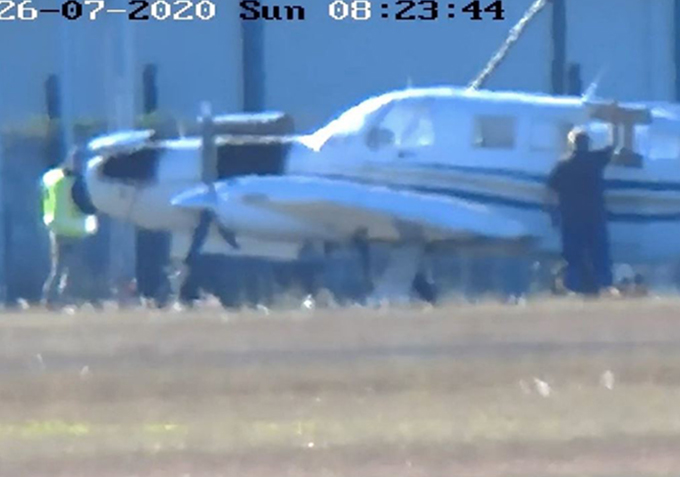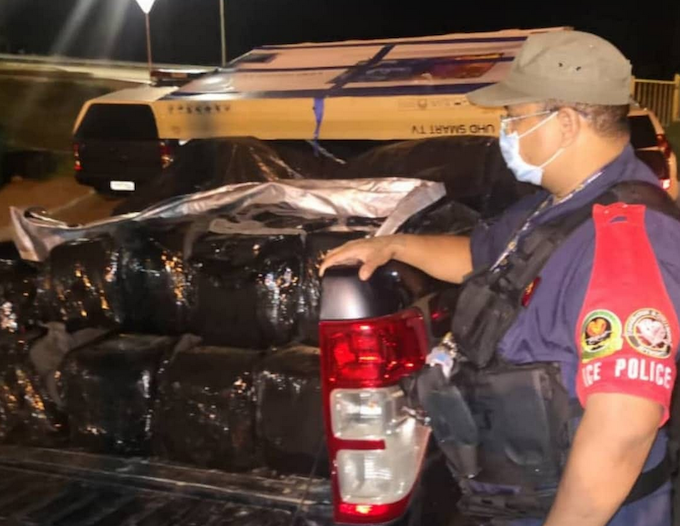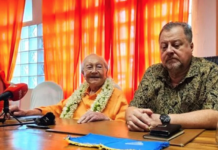
By Bryan Kramer, Papua New Guinea’s Minister of Police
Assistant Commissioner Lesa Gale of the Australian Federal Police (AFP) staged a press conference to announce the arrest of five members of an Australian drug syndicate connected to the recent drug bust in PNG.
This was a multi-agency operation that had been ongoing for two years, involving numerous Australian law enforcement agencies as well as members of the Royal Papua New Guinea Constabulary (RPNGC).
She explained that they the joint agencies had been tracking the flight as it left Australia en route to PNG.
READ MORE: PNG’s biggest drug bust – the plane crash and half a tonne of cocaine
On the afternoon of the plane crash, AFP and PRNGC were on site carrying out joint investigations.
As the Minister responsible for Police I received a brief. As the matter related to an ongoing investigation in Australia, I was asked to keep the information confidential. This explains why I never issued a statement and allowed Commissioner of Police David Manning to take the lead in providing statements to the media.
The pilot, who initially fled the scene, later presented himself to Australian consular officials before being handed over to PNG Police and PNG Immigration officials.
At the time police had yet to obtain any direct evidence of drug smuggling. No witnesses had come forward and no drugs were found at the crash site.
Pilot entered PNG illegally
What was confirmed was that the pilot entered PNG illegally. In an effort to detain him while investigations were still ongoing he was charged for illegal entry, an offence under section 16(1) of Migration Act.
By law any person charged for an offence must be brought before a court of law as soon as reasonably possible after his arrest.
The first court hearing or appearance before the court is referred to as an arraignment – where the Magistrate will read out the charges to establish if the Accused understands what he has been charged with. The Magistrate will then ask if they plead guilty or not guilty to the charges.
If they plead not guilty, the Magistrate will adjourn the matter, allowing Police three months to complete their investigation to produce the file (sufficient evidence) to convince the court to commit the accused to stand trial. This is where the court will hear the evidence to establish whether the accused is guilty of the charges.
Where the accused pleads guilty there is no need for the court to hear the evidence and it need only make a decision on the appropriate penalty – based on what the law allows.
Before making a ruling on the penalty, the court will take into consideration the seriousness of the offence, whether a person cooperated with police, whether they pled guilty and whether it was a first time offence.
In such cases the court will typically be lenient and may only impose a fine and release them on good behavior instead of imprisonment.
Court practice
In this case, the pilot pled guilty to the charge of illegal entry, where the law allows a penalty of a fine not exceeding K5000 (NZ$2100) or imprisonment for a term not exceeding six months.
Consistent with this practice, the Magistrate issued a fine of K3000 (NZ$1300) and refused bail until the fine was paid.
The Immigration Act also provides that, when a person is illegally in the country, the Minister for Immigration may order that he/she be detained in custody until arrangements can be made for his removal from the country.
This is exactly what happened following the court ruling. The Minister ordered the pilot be detained at the Bomana Immigration Detention Centre.
I noted many posts and comments on social media outraged with the court’s ruling. However, the magistrate’s ruling was correct in law. The pilot could not be charged and detained for smuggling drugs because at the time there was no evidence of any drugs being smuggled.
Following the court’s ruling, and while the pilot was detained, police were able to seize 500kg of drugs, providing the evidence they needed to lay further charges against him.
It is important to note that under PNG law the maximum penalty for importing drugs is just two years. In Australia the maximum penalty is up to life imprisonment.
Reality about a dragging case
While I note the concerns of those who want the Australian pilot to be charged and sentenced in PNG, the reality is that once charged he would be entitled to bail, the case may drag on for some years, and if convicted the penalty would be no more than two years.
In contrast, once deported to Australia he would face charges on arrival, be denied bail and face a life sentence.
Right now the RPNGC and AFP are continuing investigations to apprehend those involved in the storage and shipment of drugs, including clearing of the makeshift runway.
While I note allegations have surfaced on social media that senior officers of RPNGC are involved, these allegations are being looked into and for obvious reasons I won’t comment on them.
For now, I would like to support the comments of the AFP in Australia in acknowledging the hard work done by the Commissioner of Police and the good officers who were involved in successfully seizing the drugs.
Below: surveillance picture of the pilot and the plane taken by Australian law enforcement officers before the plane departed Australia for PNG.
Minister Kramer wrote this commentary on his Facebook page to explain the process of investigation and the legal strategy involved.














































